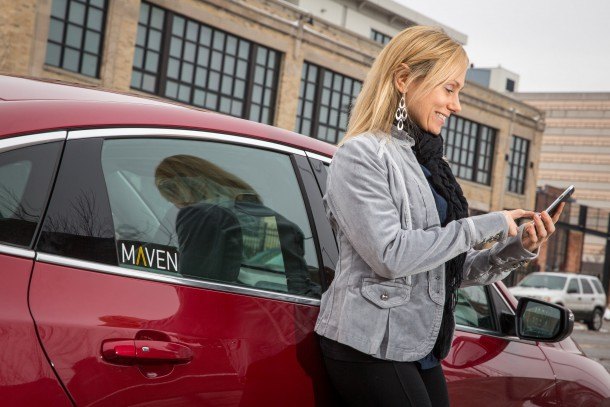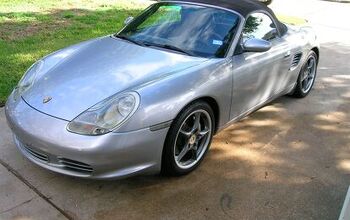GM's Maven Packs Up, Leaves Town(s)

Anyone following the saga of Uber and Lyft know that mobility services are not — not yet, anyway — a money tree that bears unlimited financial fruit. The same can be said of mobility services offered by automakers.
General Motors’ car-sharing service, Maven, like those more well-known companies, is still a fledgling operation experiencing growing pains. Its latest growth move involves shrinking, with the mobility brand dropping out of eight U.S. markets.
On Monday, a Wall Street Journal report called attention to GM’s plan to remove the service in nearly half of its 17 markets. Among markets that can continue to expect Maven vehicles close at hand are Detroit, Los Angeles, Washington, D.C., and Toronto, though Boston, Chicago, and New York City can expect a wind-down of available services or an outright desertion.
Maven launched in 2016 as a car-sharing service employing GM-owned vehicles. Like rival Zipcar, travellers or carless residents gain access to the vehicles via a phone app that tells them of their location, dropping them off after a short period of use. Hourly fees apply. Maven Gig soon cropped up, with GM offering vehicles for those who drive for ride-hailing companies or services like Uber Eats.
Looking to make money off vehicles not owned by the company, GM launched a peer-to-peer car-sharing service (Maven Peer) in Ann Arbor, Detroit, and Chicago last summer, allowing residents to rent out their own cars for extra income.
“We’re shifting Maven’s offerings to concentrate on markets in which we have the strongest current demand and growth potential,” a GM spokesperson told the WSJ.
It seems GM wishes to have fewer Maven cars in its possession, though the exact nature of the service reduction isn’t yet clear. Not all of the eight markets stand to lose all Maven services; some will retain Maven Gig (like Washington, D.C., which also loses its car-sharing and peer-to-peer service, TechCrunch reports), while others will add ride-sharing and peer-to-peer.
Everywhere, mobility is in the process of finding its feet. GM plans to offer autonomous ride-hailing services in the near future via vehicles poised to roll out of its Cruise self-driving division, though right now Cruise’s expertise involves losing the company money. Maven’s income-earning status remains a mystery.
In February, 19-year GM veteran Sigal Cordeiro stepped into the shoes of recently departed Maven head Julia Steyn, who led the brand since its inception.
[Image: General Motors]

More by Steph Willems
Latest Car Reviews
Read moreLatest Product Reviews
Read moreRecent Comments
- Honda1 It really does not matter. The way bidenomics is going nobody will be able to afford shyt.
- VoGhost Smart. EVs are pretty much at price parity with ICE already, esp. if you consider total costs of ownership, given how inexpensive EVs are to fuel and maintain.
- Jalop1991 I've read the book Car.Ford couldn't make and sell a bag of ice profitably and/or in any kind of timely manner.
- VoGhost For the same $50K, you could buy a REAL performance sedan that does 0-60 in
- Analoggrotto Ford wishes it could be Hyundai Kia Genesis.


































Comments
Join the conversation
I will be amazed if this exists in any form by January 1. Can GM get anything done except cancel product lines and close factories? Here in Brooklyn, I tried to find a convenient, reasonably-priced car a few times but never succeeded. The few I did see were either a long trip away or priced over $20/hour. For a GM car, not necessarily receiving fleet maintenance? I don't think so!
We live in central Toronto, have an Enterprise Car Share membership. I see their cars, Zip Cars and a couple of similar services around the city. But for this article, I would not have know that Maven exists here.